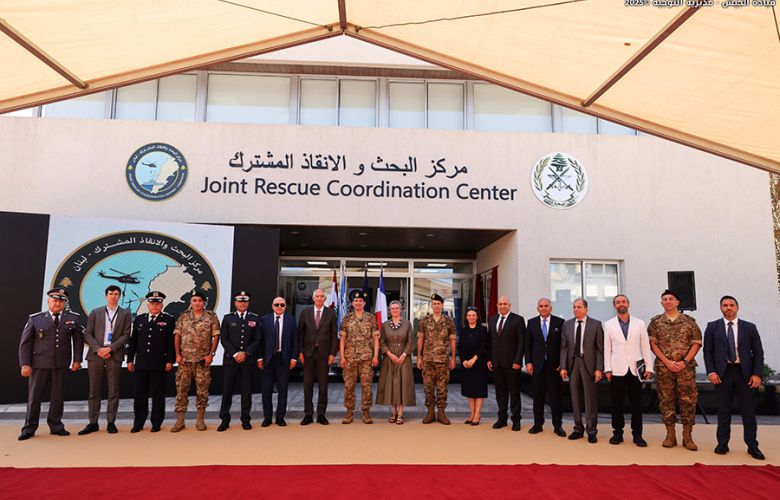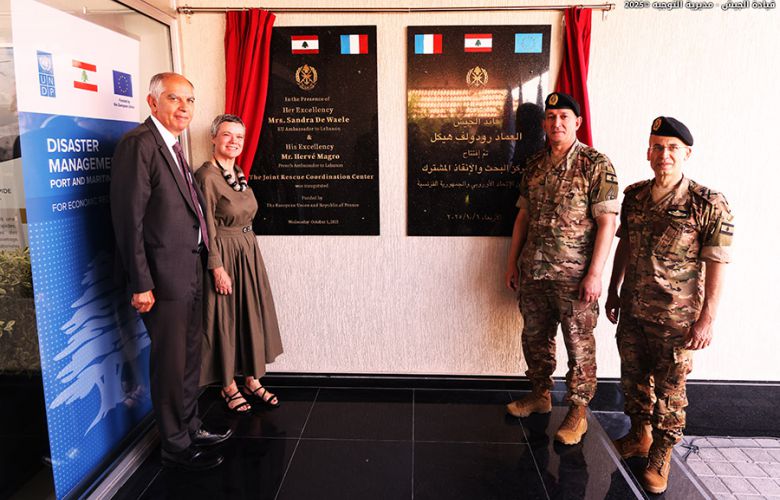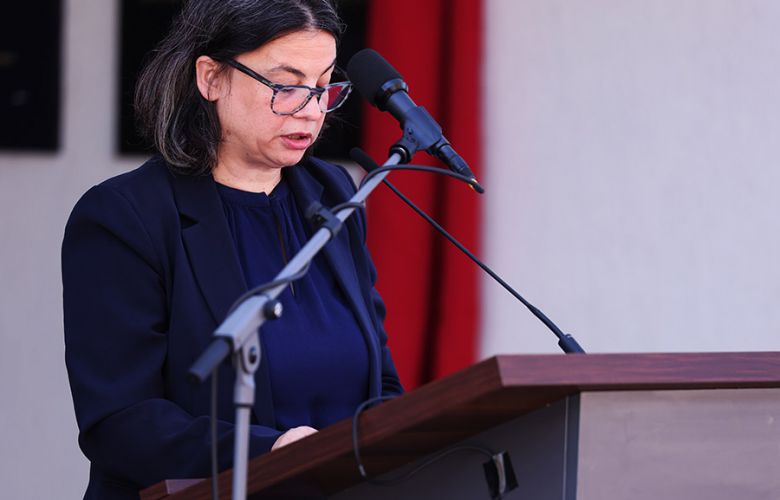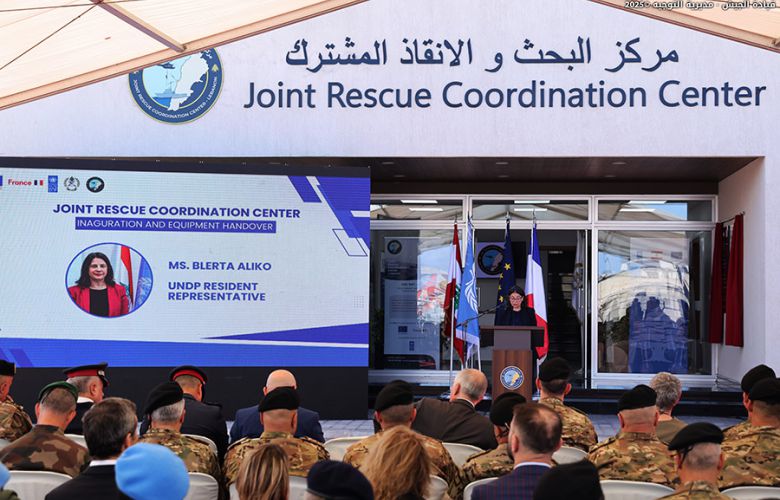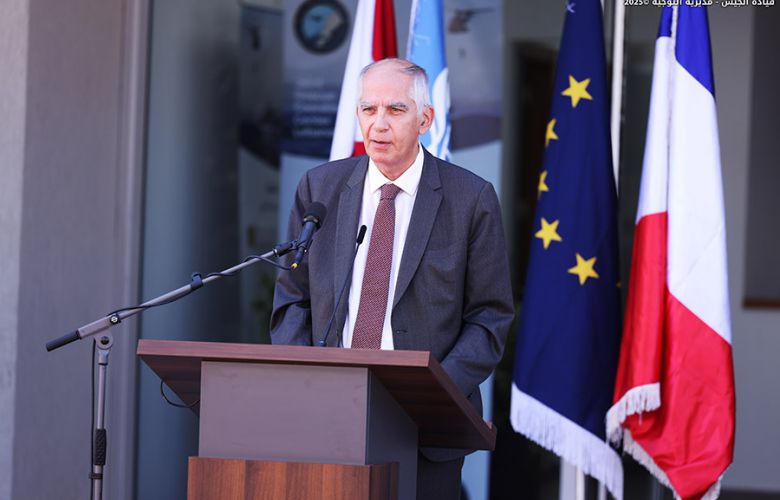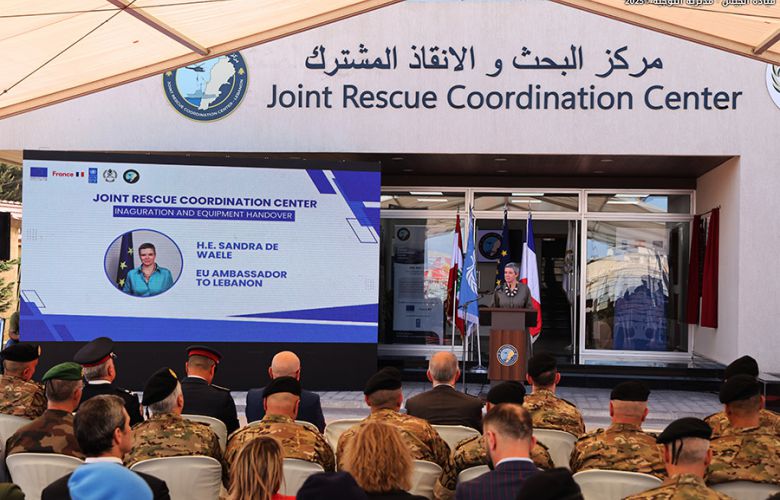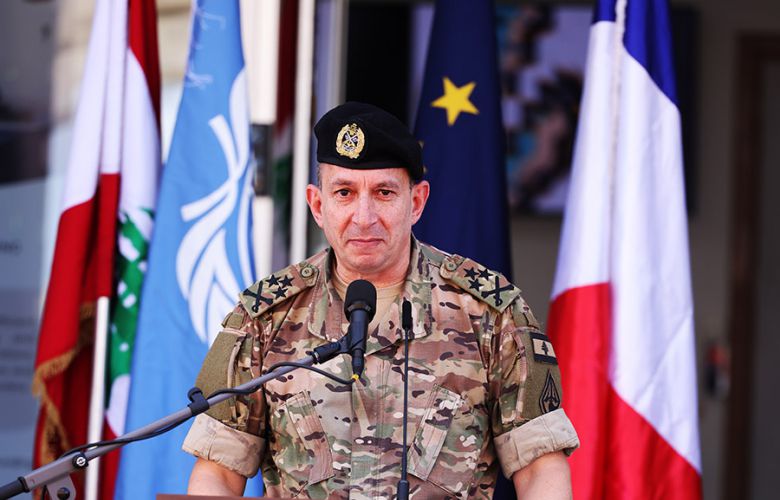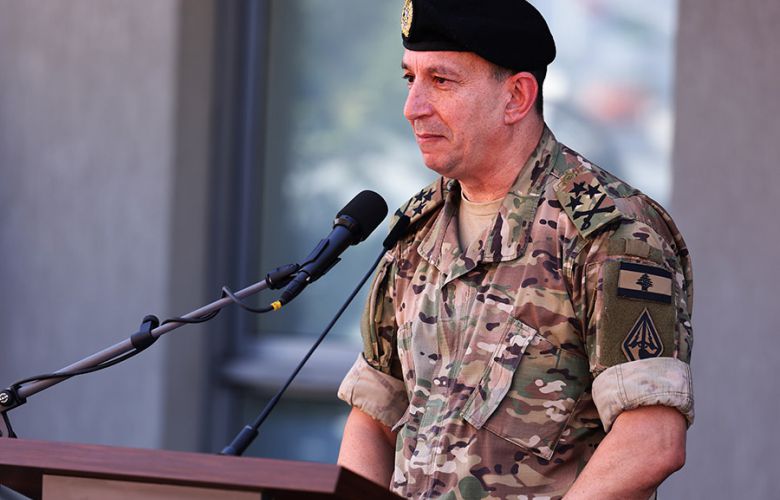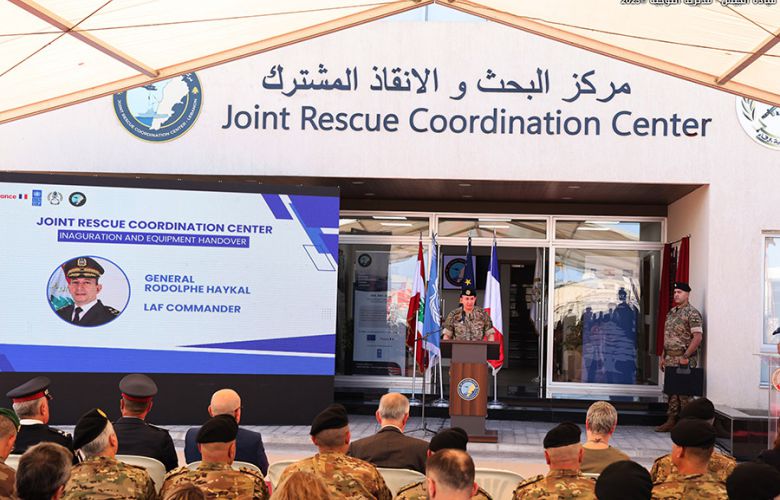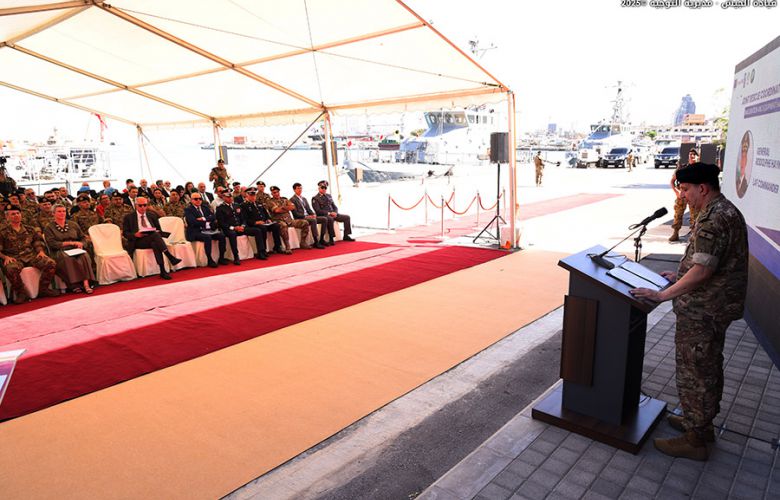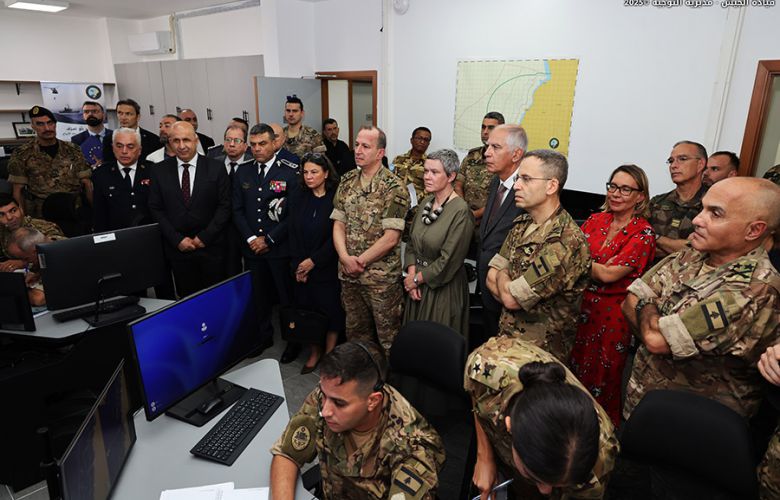Inauguration of the Joint Rescue Coordination Center (JRCC) at the Beirut Naval Base
Under the patronage and in the presence of the Army Commander, General Rodolph Haykal, the inauguration ceremony of the Joint Rescue Coordination Center (JRCC) was held today at the Beirut Naval Base. The center was established with funding from the French Republic and the European Union as part of the “Disaster Management and Port and Maritime Sector Reform for Economic Recovery” program, with technical and advisory support from the United Nations Development Programme (UNDP), the International Organization for Migration (IOM), and other partners.
As the first of its kind, the center aims to strengthen the army’s capabilities in protecting lives at sea and monitoring Lebanese territorial waters, based on four pillars: prevention, preparedness, response, and recovery. The center will coordinate emergency responses at sea, enabling faster and more organized handling of maritime distress calls, navigation incidents, and migrant rescue operations. It also strengthens cooperation between the Ministry of Public Works and Transport, the Lebanese Army, the Internal Security Forces, General Security, Civil Defense, and other relevant ministries. The center includes personnel from various agencies and institutions, as well as members of the UNIFIL Maritime Task Force.
Also present at the inauguration ceremony were Ms. Nathalie Zaarour, representing the Ministry of Public Works and Transport; the European Union Ambassador to Lebanon, Ms. Sandra De Waele; the French Ambassador to Lebanon, Mr. Hervé Magro; and the UNDP Resident Representative in Lebanon, Ms. Blerta Aliko. The event was also attended by a number of director generals, representatives from security agencies, official institutions, and international organizations.
During the ceremony, General Rodolph Haykal highlighted the urgent need for a national center of this kind, operating in line with international standards. He stated: “The Joint Rescue Coordination Center is, first and foremost, a humanitarian mission before being a technical achievement. It embodies a true partnership between the Lebanese Army, friend nations, and international organizations, all united in the goal of safeguarding every human life — whether citizen or passerby.”
He also noted that the army carries out its missions across all Lebanese territory—from maintaining internal security and stability, to monitoring and controlling northern and eastern borders, to leading the comprehensive campaign against terrorism, smuggling, and drug trafficking, and ensuring the authority of the state is upheld throughout its territory.
He concluded by expressing his gratitude to the European Union, the French authorities, and all those who contributed to the establishment of the center.
On another note, the European Union Ambassador highlighted that the EU has provided technological equipment, rescue gear, and training to the army and other security institutions.
The French Ambassador reaffirmed his country’s commitment to supporting the project through continued training and the exchange of expertise.
The UNDP Resident Representative noted that this project aims to save lives, protect the most vulnerable, and reinforce public confidence in the state's ability to respond to maritime risks with efficiency and effectiveness — ultimately ensuring the safety of all.















